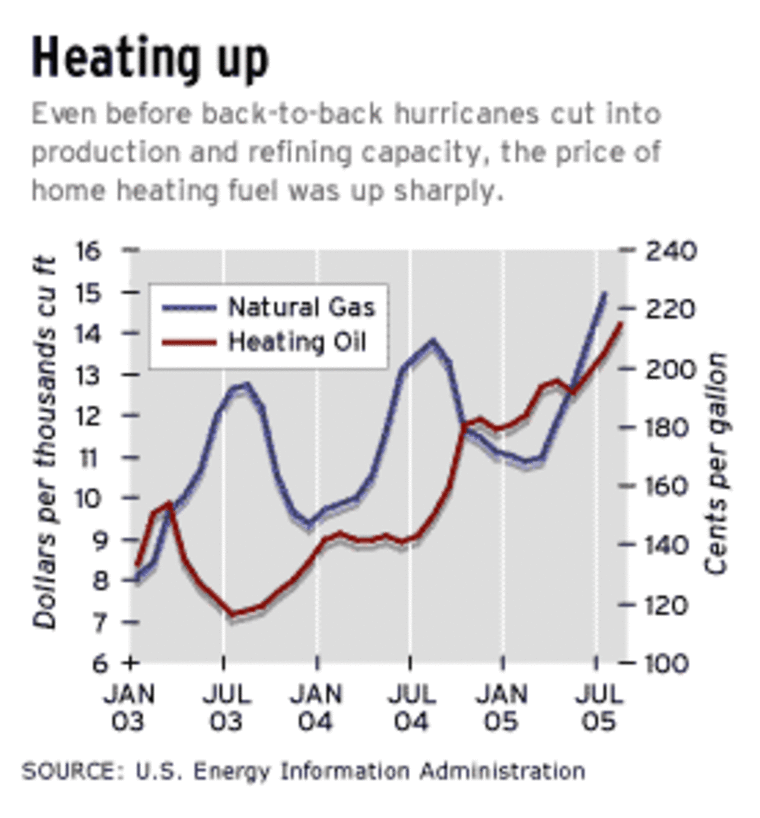POTOMAC, Md. — It's a perfect combination to send heating bills through the roof: high global demand for oil and gas, tight supplies and two hurricanes taking direct aim at the nation's supply lines.
Now Americans are bracing for the monthly heating bill.
"It's going to be a significant, really, a shocking increase in prices this winter that we're anticipating," says Kateri Callahan with the Alliance to Save Energy.
How much?
Last winter, it cost $1,000 to heat the average home with natural gas in the Midwest. This winter, that same heating bill could climb to $1,500.
And it's not just natural gas prices, which are expected to surge 50 percent to 71 percent this winter. The Energy Information Administration predicts the cost of heating oil will also rise 34 percent.
That's why Bette Rice picked up a "Popular Mechanics" book at her local library, to learn how to better insulate her suburban Denver home.

"We have a couple of rooms in our house that are very, very cold in the winter," she says.
Home heating expert Margarita Arlacon recommends starting at the thermostat and lowering the temperature to 65 during the day.
"A programmable thermostat will save you about 20 percent on your energy bill during the winter months," she says.
Other energy saving tips:
- Ensure there is six inches of insulation in the attic.
- Replace furnace filters.
- Use thick window coverings to keep out the cold.
- Weather seal windows and doors.
- Tape leaky duct work.
And don't forget the garage door.
"Cold air is coming in there and you're definitely going to want to change out the weather stripping and seal up the gap," says Arlacon.
Experts advise sealing that gap now to keep your house and wallet from leaking even more this winter.